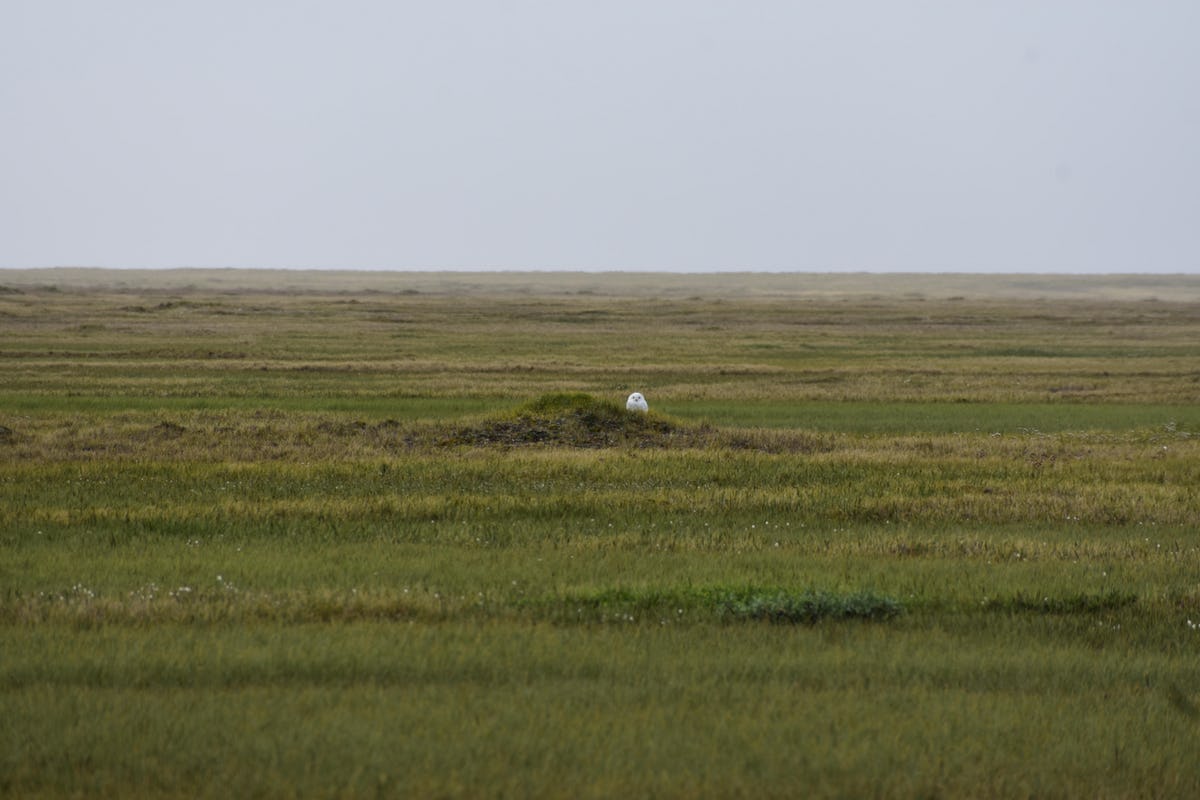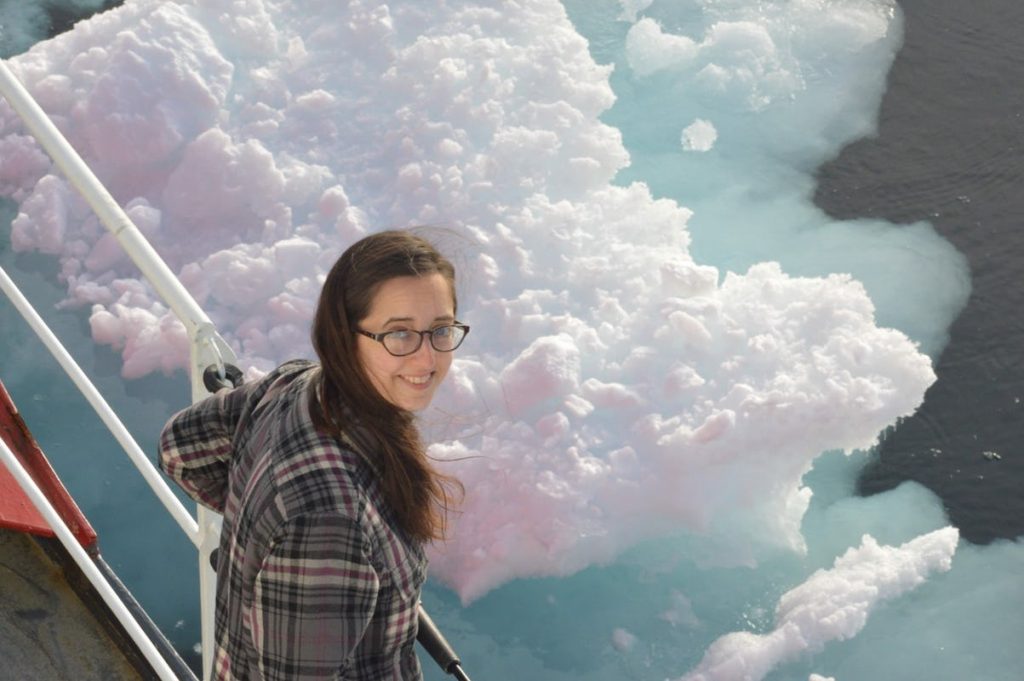An Arctic Imposter’s Journey to Belong

Snowy owl near Utqiaġvik, Alaska. Photo: Meredith LaValley
In recent years, women researchers, scientists, and local champions have elevated their visibility and empowered their voices across the world. The Arctic is no exception. With powerful organizations like 500 Women Scientists and local movements like Women in Polar Science and Plan A growing their reach and impact, women are sharing their personal narratives, highlighting their contributions, and supporting each other like never before. The Arctic Institute’s Breaking the Arctic’s Ice Ceiling is our team’s contribution to this movement. In a series of commentaries, articles, and multimedia posts, we are highlighting the work of women working and living in the Arctic.
The Arctic Institute Breaking the Arctic's Ice Ceiling Series 2019
- Looking Up: Women in Arctic Science
- The Gender Gap in Arctic Research Awards and Leadership – Infographic
- An Arctic Imposter’s Journey to Belong
- Women Are America’s Climate Change Champions
- Vegan at Sea-gan: The Arctic Ocean
- Golden Rule in Arctic Science and Community Partnerships
- Is the Future of the European Arctic Socially Sustainable?
- Geo-mapping in the Canadian Arctic
- Women in Polar Research: A Brief History
- It’s Our Table: Indigenous People Shaping Arctic Policy
Last July, I packed my hatchback and aimed for Alaska. I was moving to live nearer the place I had devoted my heart and my early professional career to, the Arctic. While working on my Master’s degree, I landed an internship that developed into a position at the Interagency Arctic Research Policy Committee; an innovative organization that coordinates US Arctic research, and where I gained experience implementing Arctic research policy. In spite of time invested at what I considered the highest levels of Arctic research policy development – Washington, DC – my understanding of the US Arctic remained abstract. As a person who values learning from direct experience, I needed visceral connections to the land and people in order to begin comprehending the Arctic.
Also, as an early career woman, I wanted to confront the feelings of being an imposter that were a near constant part of my professional reality. Feelings of chronic and severe intellectual self-doubt are clinically defined as imposter phenomenon (IP), and has been shown to affect gender and ethnic minorities disproportionately. IP sufferers fear failing and tend to overestimate the significance of their mistakes and internalize them. This fear leads to missed opportunities and dampens professional development. When I left for Alaska, I wanted to prove that I could belong, but the Arctic was well-insulated and I was only beginning the process of overcoming these self-limiting ideas.
My first step into the Arctic was directly onto the tarmac at Utqiagvik airport. It was not just the snow in August and the snowy owl swooping down on an arctic fox that startled me with their unfamiliarity. Although the community welcomed me warmly, I was reminded that the needs in the Arctic are often distinct, or require a different approach, from those in the lower 48. These differences make it critical for those working on Arctic issues to have first-hand experience of the region and strong ties with its people and organizations. The factors that make the Arctic unique can make it an insular space where outsiders, sometimes for good reason, are seen as not “getting it.” Feelings of being an outsider are also related to the strong presence of Indigenous Peoples and cultures that are deeply connected to the land in a way that I will never know but can respect and learn about.

I came to Alaska to understand its needs, and found these as complex and sometimes inaccessible as Alaska itself; instead of feeling less of an imposter, I often felt more of one. Because my feelings of not deserving to be in a space are linked to my identification as a woman, I find myself looking to the women I have encountered working in the Arctic as examples for how to establish my place.
Allowing myself to ask questions was the foundational step. While working with a woman who had a skill for asking seemingly simple but enlightening questions, I discovered the importance of questioning. I have forgone opportunities for deeper understanding because I felt I needed to appear like I already knew everything. When I do not understand something, it is not because I cannot, but because I have not had or taken the opportunity to understand it. Embracing each chance to learn is enormously valuable, and can be encouraged in every meeting, conference, and conversation.
Then, there are the opportunities to use my voice to add my perspective to a conversation. I had often hesitated because I feared seeming inexpert, but with encouragement from the women and men around me, I now know that speaking creates an opening for my perspective to be evolved through dialogue. More importantly, I can use my voice to advocate for the inclusion of others.
Sailing on the icebreaker Healy this August, my first field experience, was eye-opening and challenging. During this voyage, I faced the feelings I carry with me of not belonging. Taking samples took me longer than necessary to learn because I would look for help before I really needed it for fear of messing things up. After disembarking in Nome, a fellow woman changed my perspective on what transpired during the cruise with just a couple of words. She told me it is necessary to fail in order to learn. I realised that by limiting my mistakes, I limited my ability to learn. Let’s encourage each other to get messy and gain knowledge from the failures.
I will never truly be an insider in the Arctic. I can, however, work to shed the feelings of doubt that keep me from fulfilling my intention to be of service to the region I care for. Having the opportunity to share this piece is a step in that process. I hope that by sharing these experiences, others will find their own ways of taking the helm.
Meredith LaValley is currently a project analyst at the Interagency Arctic Research Policy Committee (IARPC), which consists of agencies, departments, and offices across the U.S. Federal government, and is charged with enhancing both the scientific monitoring of and research on local, regional, and global environmental issues in the Arctic.